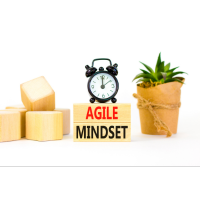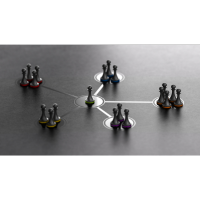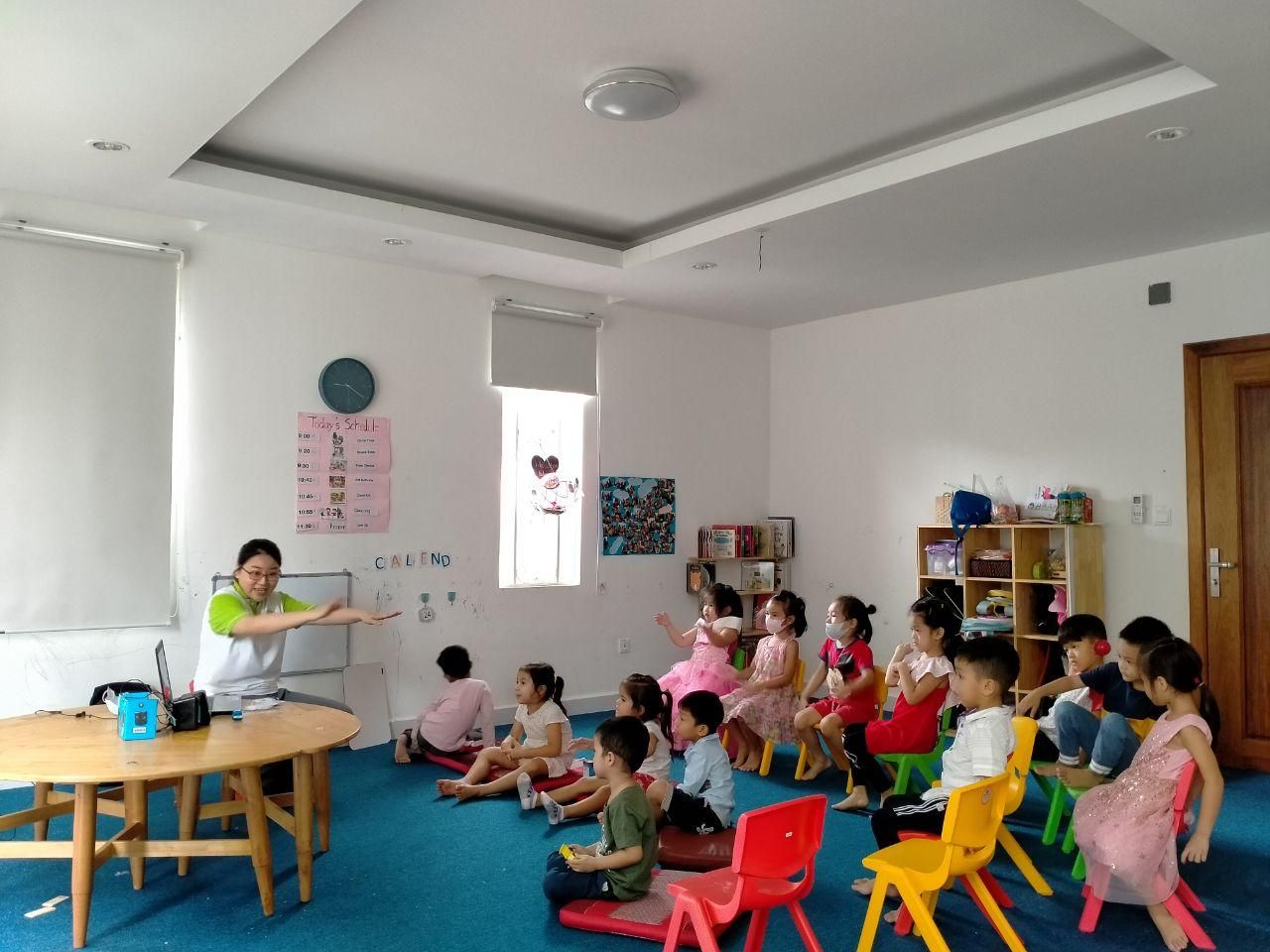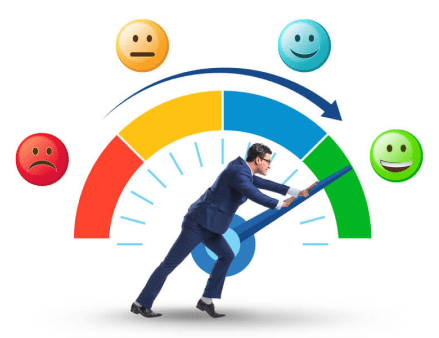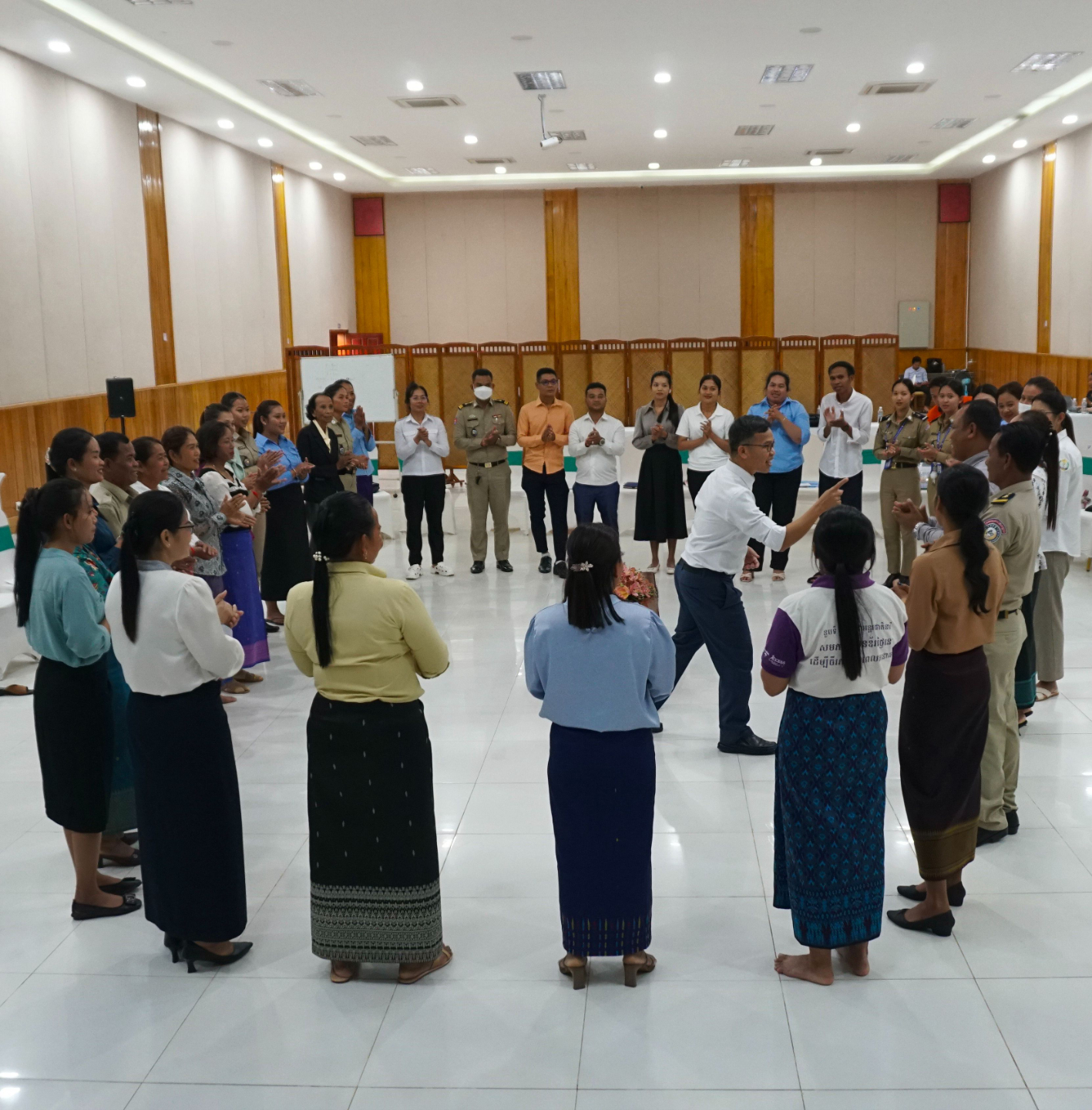About
Company
At KIA, our journey is rooted in a commitment to fostering positive transformation in the lives of individuals and organizations. Established with a vision to empower, inspire, and elevate, we have evolved into a dynamic platform offering a spectrum of services tailored for personal and professional growth.
Our history is woven with the threads of impactful training workshops, personalized coaching sessions, and expert consulting services. From the early days, our focus has been on creating an environment where individuals can unlock their full potential, be happier, and enhance their productivity in every endeavor.
At KIA, our legacy is built on a simple yet powerful mission. Welcome to a community where growth knows no bounds, and positive impact is our shared destination. Together, let's embark on a journey of transformation and success at Kinder Impact Academy.
WELCOME
Message
I firmly believe in the inherent positivity within each of us. It is my unwavering conviction that by recognizing and nurturing this positivity, we can unlock untapped potential and foster a culture of growth and excellence. At the core of our success lies our ability to see the best in one another, to build relationships grounded in mutual respect and positive regard. Together, we can create an environment where everyone feels valued, supported, and empowered to reach their fullest potential.
My vision for our team is one where every individual is empowered to pursue their dreams and aspirations. I am committed to providing the guidance, resources, and support necessary for each of you to achieve your goals. Together, let us embark on a journey of collaboration, inspiration, and empowerment. By harnessing the power of positivity and cultivating strong relationships, there is no limit to what we can achieve together. Here's to a future filled with success, growth, and fulfillment for us all.

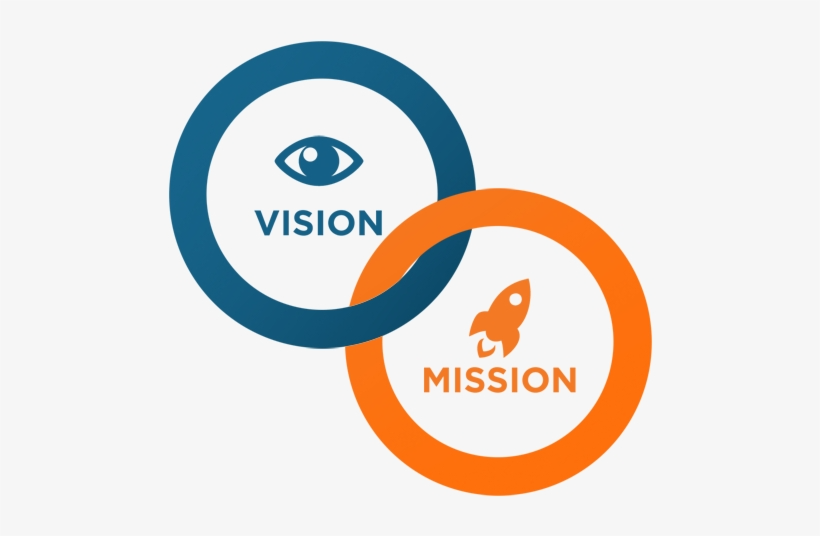
Vision & Mission
Vision
To shape a future where every person grows with purpose and creates lasting impact through transformative learning experiences.
Mission
At Kinder Impact Academy (KIA), we help people unlock their full potential and achieve meaningful, lasting impact through personalized coaching, expert consulting, and dynamic training programs.
Our Services
1. Training/ Workshop
- Personal Development
- Emotional Intelligence
- Communication Skills
- Self-Empowerment
- Parenting Skills
- Agility Mindset
- Team-Building
- Leadership
- Coaching skills
- Early Childhood Education
- Customer Service Excellence
- Trainer & Facilitator Mastery
Our training and workshop programs cover a wide spectrum of topics including personal development, emotional intelligence, effective communication, leadership, and more. Designed to empower individuals and teams, these sessions foster skill enhancement and promote a culture of continuous learning and improvement.
2. Coaching
- Personal Coaching
- Executive Coaching
KIA offers personalized coaching services tailored to both personal and professional development needs. Our expert coaches specialize in personal coaching for individuals seeking growth and transformation, as well as executive coaching for leaders aiming to enhance their leadership skills and drive organizational success.
3. Consulting
- Company & Functional Competency
- Learning & Development
- Parenting
- Early Childhood Education
Our consulting services span four core areas: Company & Functional Competency Consulting, Learning & Development Consulting, Parenting Consulting, and Early Childhood Education. Through strategic assessment and customized solutions, we empower organizations to optimize performance, enhance employee engagement, and foster a culture of excellence.
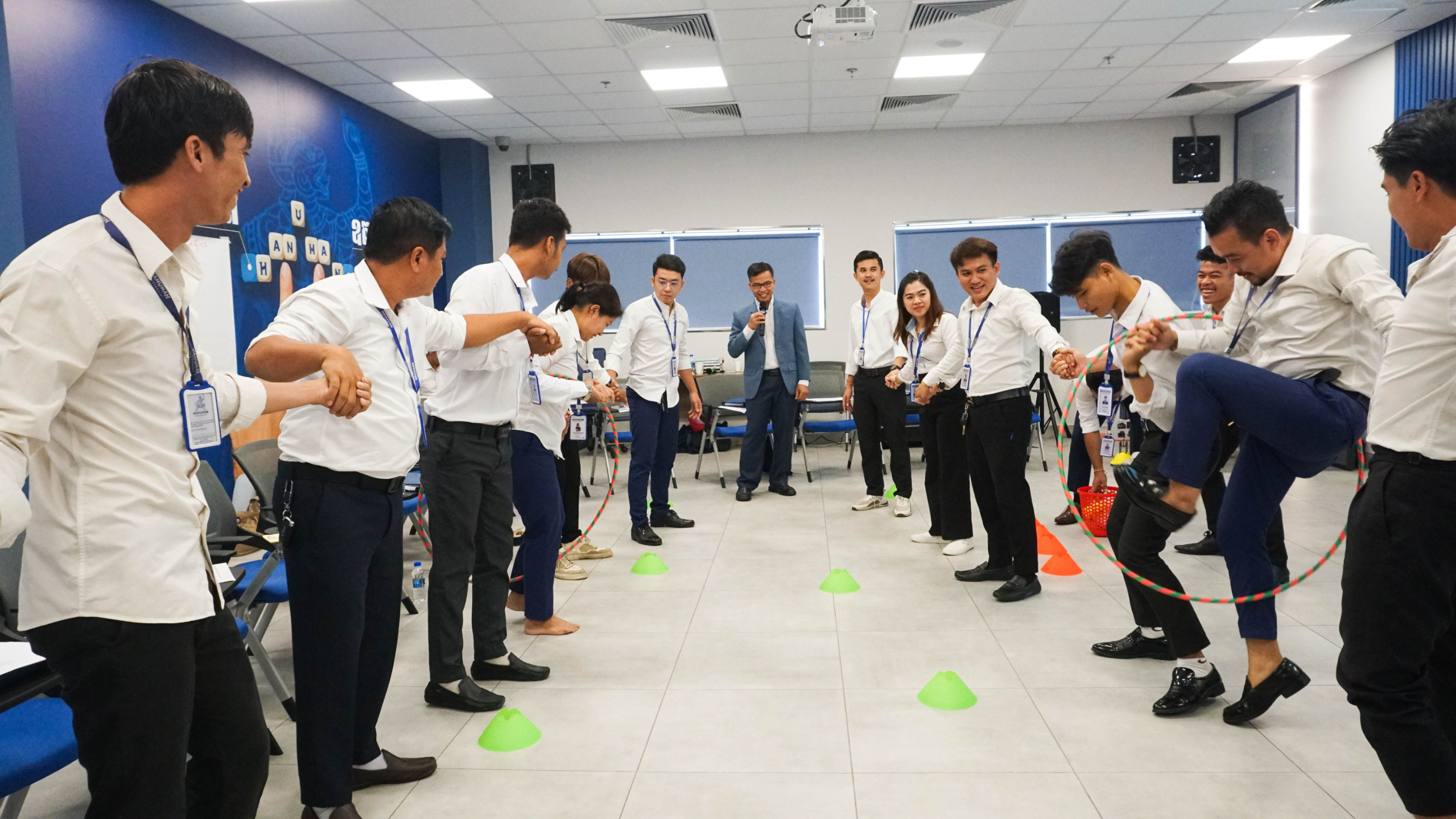
Training Courses

Personal Development
Course Objectives
Personal development is taking steps to better yourself, such as by learning new skills or overcoming bad habits. This training course helps you to know yourself better, to have clear personal goals/ plans, to have better self motivated, so professional qualifications and quality of life are improved.
Course Outlines
- Self-Discovery/ Self-Awareness/ Knowing Self
- Personal Core Value
- Personal Goal-Setting
- Self-Motivation
- Self-Directed Learning
Module 1: Self-Discovery
Objectives
- Examining positive and negative events and the impact these have had on your life up until present.
- To identify who are the important people in life.
- Identify strength and weakness and then work on their weakness and reinforce strength to have better work and life.
Outlines
- What is your family history?
- What family members or characteristics (helper or leader) have influenced your life? Those people who’ve taught you.
- Do you have a sense of belonging to a particular place or culture?
- What supports and sustains you. The things in your past that influence you in the present.
- Your skills and abilities and qualities such what you are good at or things that you like about yourself.
- Your dreams, hopes and goals.
- People who are currently significant in your life recently.
- Gifts you have received from these people - not only material things, but also things like love and encouragement.
Module 2: Personal Core Values
Objectives
- Identify your core values and passion.
- Apply these values to your own life.
- Work well with others.
Outlines
- Value story telling.
- Identify your values?
- What to do with your values?
- Why core values are important?
- How to use your values your success?
Module 3: Personal Goal-Setting
Objectives
- Set short term and long term goals for personal and professional success.
- Manage your time widely to achieve your goals.
- Use influence to achieve these goals.
Outlines
- The importance of goal setting?
- Set realistic goals and believe in them.
- Manage your time wisely so you can use it to work towards your goals.
- The power of law attraction regarding goals.
- Live your goals.
Module 4: Self-Motivation
Objectives
- Describe the important of self-motivation.
- Explain the step in self-motivation.
- Apply yourself motivation concept in personal and professional life.
Outlines
- What is self-motivation?
- The importance of self-motivation.
- Steps to self-motivation.
- Self-determination.
- Visualization and success.
Module 5: Self-Directed Learning
Objectives
- Describe the definitions and benefits of self-directed learning.
- Identify their learning needs.
- Set learning goals.
- Identify human and material resources for learning.
- Select and implement appropriate learning strategies.
- Evaluate their learning outcomes.
Outlines
- Definitions of self-directed learning
- Benefits self-directed learning
- How to set learning goals.

Emotional Intelligence
Emotional Intelligence
DURATION: 2 days
LANGUAGE: Khmer
TRAINEE LEVEL: Staff, Supervisor, Manager
Emotional Intelligence Training Course
Emotional Intelligence (EQ) training is a transformative experience that empowers participants to succeed in their careers and personal lives. Research consistently shows that EQ is more crucial for job success than IQ, experience, or technical skills across all levels of an organization. Individuals with higher EQ are better equipped to handle pressure, resolve conflicts effectively, and demonstrate empathy towards their colleagues. This comprehensive training course aims to enhance participants' EQ skills and provide them with the tools to navigate challenging situations and foster healthier relationships in the workplace.
Course Objectives:
- Develop self-awareness and awareness of others.
- Acquire essential skills for healthy Emotional Intelligence.
- Learn effective techniques to manage emotional reactions.
- Improve conflict resolution strategies for difficult people and situations.
- Enhance decision-making abilities.
- Strengthen resilience to overcome tough times.
- Cultivate empathy and connection with others.
- Increase stress tolerance and overall happiness.
- Foster trust and team cohesiveness.
- Enhance interpersonal communication skills.
Benefits of Emotional Intelligence Training:
- Improved career prospects and advancement opportunities.
- Enhanced team performance and collaboration.
- Increased individual effectiveness and productivity.
- Better decision making, even in challenging circumstances.
- Reduced stress levels and improved well-being.
- Enhanced leadership abilities and influence.
- Promotion of diversity and inclusion in the workplace.
- Boosted optimism and self-confidence.
Targeted Participants:
- Employees at all levels.
- Supervisors and team leaders.
- Managers responsible for teams.
- Executives seeking personal and professional growth.
Module 1: Introduction to EQ (self-awareness)
- Differentiating IQ and EQ.
- Understanding the concept of EQ.
- Where is the Emotion?
- Emotional Change
- Habit of Thought
- Habit of a Negative Person
Module 2: Four Steps to Emotional Control
(Social Awareness)
- Identify.
- Use.
- Understand.
- Adjust.
- Practical exercises for emotional control.
Module 3: Emotions & Telomeres (Self-Management)
- Exploring the connection between emotions and telomeres.
- Discovering wisdom related to emotional well-being.
- Practicing the "KAIZEN" approach for heart improvement.
Module 4: Applying Four Steps of Emotional Control in Relationships
(Relationship Management)
- Summarizing the four-step process of emotional control.
- Contest
- Reflecting on personal happiness levels.
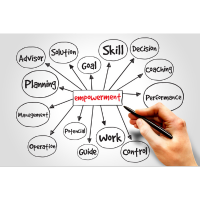
Self Empowerment
Self Empowerment
Course Description:
This 2-day Self-Empowerment training is designed to help participants unlock their inner potential by gaining greater self-awareness, overcoming emotional barriers, and cultivating habits that lead to personal growth. Through understanding core values, managing emotions, and upgrading their internal operating system (IOS), participants will learn how to take charge of their personal and professional lives with confidence.
Learning Outcomes:
By the end of the course, participants will:
- Recognize and release emotional baggage that hinders progress.
- Clarify and align personal core values for a purposeful life.
- Understand and apply the concepts of EgoGram and Transactional Analysis to improve self-awareness.
- Establish healthy personal boundaries and practice effective self-care.
- Learn techniques to upgrade their internal operating system (IOS) for long-term empowerment.
Course Outline/Content:
Day 1: Self-Awareness and Emotional Mastery
- Emotional Baggage (2 hours)
- Understanding emotional baggage and its impact.
- Techniques to identify and release limiting beliefs and negative emotions.
- Activity: Emotional detox exercise.
- Personal Core Values (2 hours)
- Defining and understanding personal core values.
- Aligning daily actions with core values for clarity and direction.
- Activity: Core values discovery workshop.
- EgoGram and Transactional Analysis (3 hours)
- Introduction to EgoGram: Understanding the Parent-Adult-Child states.
- Transactional Analysis: Improving self-awareness and communication.
- Activity: Personal EgoGram analysis and role-play exercises.
Day 2: Personal Boundaries and Empowerment Tools
- Personal Boundary Management & Self-Care (3 hours)
- Understanding the importance of personal boundaries in relationships.
- Techniques for setting and maintaining healthy boundaries.
- Self-care strategies to recharge and maintain emotional well-being.
- Activity: Boundary-setting role plays.
- Upgrade Your IOS (Internal Operating System) (4 hours)
- Exploring the mind as an operating system (IOS).
- Identifying outdated mental programs and beliefs.
- Installing empowering beliefs and upgrading thought patterns for success.
- Activity: Mindset reprogramming workshop and action planning.
- Course Conclusion & Action Planning (2 hours)
- Recap of key concepts.
- Creating a personal empowerment action plan.
- Group sharing and feedback.

Team-Building
DURATION: 2 days
LANGUAGE: Khmer
TRAINEE LEVEL: Staff, Supervisor, Manager
Course Description:
This Team-Building Training is designed to strengthen collaboration, trust, and communication within teams. Through interactive activities, group discussions, and self-reflection, participants will gain the tools and strategies necessary to enhance team dynamics and foster a culture of high performance. The course will explore key aspects of teamwork, including goal setting, conflict resolution, communication, and trust-building, while helping participants develop skills to become effective team members and leaders.
Learning Outcomes:
By the end of the course, participants will:
- Understand the essential elements of effective teamwork.
- Learn how to build trust, resolve conflicts, and foster open communication within a team.
- Improve team collaboration and problem-solving skills.
- Recognize and leverage the strengths of individual team members.
- Develop strategies for maintaining high-performing teams in the long term.
Day 1: Foundations of Teamwork and Trust Building
1. Introduction to Teamwork (1 hour)
- The importance of teamwork in achieving organizational success.
- Characteristics of high-performing teams.
- Challenges teams face and how to overcome them.
2. Building Trust within Teams (1.5 hours)
- The role of trust in team dynamics.
- How to build and maintain trust.
- Trust-building exercises and activities.
- Activity: Trust fall exercise to foster mutual support.
3. Defining Roles and Team Goals (1.5 hours)
- Importance of clear roles and responsibilities.
- Setting team goals aligned with organizational objectives.
- Ensuring team members are accountable for their roles.
- Activity: Team goal-setting workshop.
4. Enhancing Communication within Teams (2 hours)
- Understanding different communication styles.
- Effective communication strategies for team members.
- The role of active listening in team success.
- Activity: Communication styles assessment and interactive group exercise.
- 5. Problem-Solving and Decision-Making in Teams (2 hours)
- The team approach to problem-solving.
- Consensus-building and decision-making processes.
- Tools and techniques for collaborative problem-solving.
- Activity: Problem-solving challenge – collaborative group exercise.
- 6. Reflection and Team Insights (1 hour)
- Group discussion: Lessons learned from Day 1.
- Reflect on individual contributions to teamwork and areas for improvement.
- Activity: Team reflection session.
Day 2: Collaboration, Conflict Resolution, and Sustaining Team Success
1. Icebreaker and Day 1 Recap (30 minutes)
- Fun team-building icebreaker to energize participants.
- Recap key lessons from Day 1.
2. Understanding Team Dynamics (1.5 hours)
- Stages of team development (Forming, Storming, Norming, Performing).
- Identifying team strengths and areas of growth.
- Activity: Group discussion on team experiences in different stages of development.
3. Conflict Resolution within Teams (2 hours)
- Common sources of team conflict.
- Techniques for managing and resolving conflicts effectively.
- Encouraging constructive feedback and open dialogue.
- Activity: Role-play scenarios to practice conflict resolution skills.
4. Collaboration and Creativity in Teams (1.5 hours)
- The importance of collaboration in driving innovation.
- Techniques to foster creativity and innovation in teams.
- Brainstorming strategies and idea generation.
- Activity: Group creative brainstorming challenge.
5. Leveraging Team Member Strengths (1.5 hours)
- Understanding individual strengths and roles in the team.
- How to align team tasks with each member’s strengths.
- Activity: Strengths assessment and group exercise.
6. Sustaining High-Performing Teams (1.5 hours)
- Maintaining team motivation and engagement over time.
- Leadership's role in nurturing a high-performance culture.
- Continuous improvement strategies for teams.
- Activity: Group discussion on best practices for sustaining team success.
7. Final Team-Building Challenge (1 hour)
- A fun, collaborative activity designed to incorporate all team-building skills learned during the course.
- Activity: Team project or outdoor challenge (e.g., build a structure, complete a task with limited resources).
8. Reflection, Action Planning, and Course Wrap-Up (1 hour)
- Reflect on the key takeaways from the course.
- Action planning for applying team-building techniques in the workplace.
- Course feedback and final remarks.
- Activity: Participants create an individual and team action plan for post-training application.



